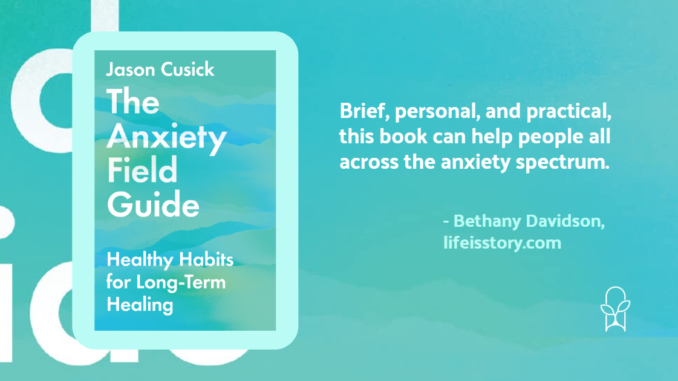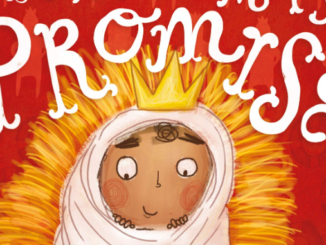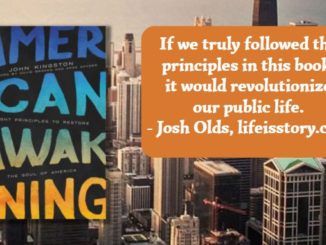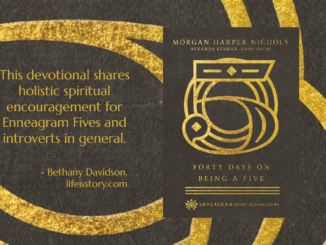
Published by IVP on April 26, 2022
Genres: Non-Fiction, Christian Life
Buy on Amazon
Goodreads

Anxiety is one of the most pressing mental health issues of our day. Millions of people in our society suffer from anxiety, often unbeknownst to those around them. The pressures of modern life seem specially designed to cause anxiety, and anxiety is on the rise in recent years. The good news is that anxiety is very treatable. Pastor Jason Cusick tells the story of his own history with anxiety and offers expertise, practical guidance, and empathy. The book is intentionally designed for the reader to be an easy entry point with short, easily digestible chapters and simple step-by-step instructions for developing healthy habits for long-term progress. Cusick presents clinical data alongside pastoral wisdom and care, addressing both the psychological and spiritual aspects of anxiety. Filled with practical advice and the hope of Christ, The Anxiety Field Guide is a rich resource for both those who suffer from anxiety and those in a position to help them.
This concise, easy-to-read book is full of great advice for dealing with anxiety and intrusive thoughts. Jason Cusick shares a wealth of information in a way that feels genuine and personal, distilling what he has learned from counseling and in-depth reading into a simple, straightforward guidebook. His vulnerability about his struggles with anxiety and OCD greatly enhances the book, and people who feel turned off from academic, clinical books about mental health issues will appreciate this book’s short chapters, simple action steps, and personal touch.
Content and Audience
The Anxiety Field Guide: Healthy Habits for Long-Term Healing features thirty short chapters that Jason Cusick designed to build on each other. He writes about perspective shifts, lifestyle changes, and therapeutic approaches that can help anxious people calm themselves in the short-term and rewire their brains in the long-term, and when he encourages readers to fill out a worksheet like an exposure ladder, he shares his own as an example. I greatly appreciate his vulnerable and practical approach to helping others, and I especially enjoyed his Christian perspective, since most of the books I have read about mental health issues come from secular worldviews. Cusick welcomes readers of different belief backgrounds and shares advice that anyone can find helpful, but he also shares spiritual insights that Christians will find encouraging.
One of my favorite elements of this book is how well Cusick addresses struggles with intrusive thoughts, since very few non-specialized books about anxiety cover obsessive thoughts and compulsions. Cusick clearly explains cognitive behavioral therapy approaches to dealing with intrusive thoughts, and illustrates how readers can use self-directed exposure therapies to help them regulate their anxiety and limit use of compulsions. Given how little I have ever been able to read about OCD from a Christian viewpoint, I greatly appreciated his targeted insights and his ongoing references to intrusive thoughts. This element of the book will include and encourage OCD sufferers, and will also help people who deal with intrusive thoughts to a lesser degree.
Conclusion
The Anxiety Field Guide is an excellent book for teens and adults who struggle with different types of anxious thoughts, feelings, and behaviors. The book is broadly applicable despite its brevity, and in all of my prolific reading about anxiety and OCD, I have never found a book that is so brief, to-the-point, personal, and practical. I am grateful for Cusick’s vulnerability and insight, and highly recommend this to people who are struggling with anxiety or helping someone who is. This book can help people all across the anxiety spectrum, no matter how minor or severe their issues are, and is full of wisdom and encouragement for pursuing long-term growth and healing.



